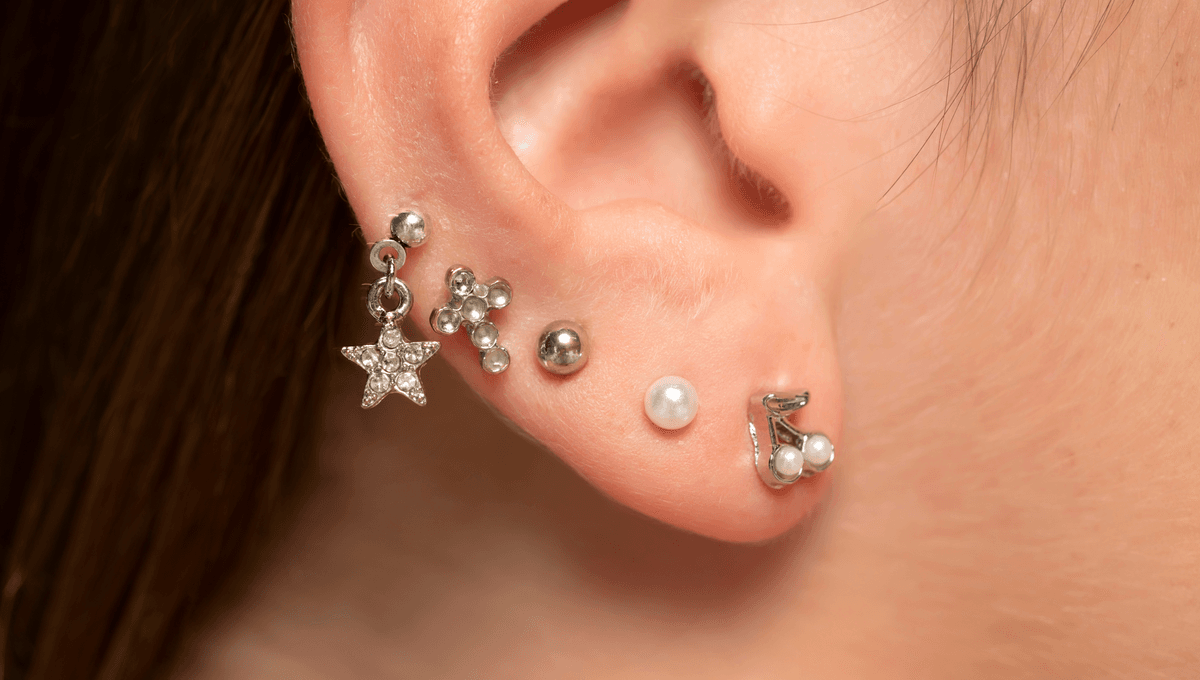
A team of researchers from McGill University and Tattoo Lounge MTL in Montreal, Canada – which should be your first clue that this is a doozy of a project – have described how the skin’s microbiome changes when we get our ears pierced.
All of us, whether we like it or not, are covered head-to-toe with trillions of bacteria, fungi, and viruses that comprise the skin’s microbiome. You can’t scrub it away, and you wouldn’t want to if you could: “Similar to those in our gut, skin microorganisms have essential roles in the protection against invading pathogens, the education of our immune system and the breakdown of natural products,” explains a 2018 article from the journal Nature Reviews Microbiology. “In circumstances where the barrier is broken or when the balance between commensals and pathogens is disturbed, skin disease or even systemic disease can result.”
However, there is one everyday situation in which these microorganisms are neutralized, at least locally: when we get a piercing. The piercer starts by sterilizing the area, effectively providing a “clean slate” in terms of microflora, the researchers write – and, therefore, a perfect opportunity to study how the skin’s microbiome builds itself up in ecological niches of the body.
“By exploiting this common yet uniquely human practice, we show that skin piercings are not just culturally significant but also represent ecosystem engineering on the human body,” the article reports. “The novel habitats and communities that skin piercings produce may provide general insights into biological responses to environmental disturbances with implications for both ecosystem and human health.”
The team collected their data using skin swabs from 28 volunteers, taken by the piercer both before and after they received a piercing. The newly-punctured patrons then submitted further swabs from the site – the first after 12 hours, then one day later, three days later, one week, and finally two weeks later.
The results were dramatic, they discovered: “Despite sterilization serving as a major environmental disturbance that kills many resident species, we found that, over time, the new piercing environment promoted greater biodiversity and ecological complexity, and fundamentally changed the nature of biotic interactions compared to exposed earlobe skin,” the team noted.
For example, the researchers predicted – and confirmed – that the microbiome that developed around a new ear piercing would be similar to those found in moist areas like the nose, armpit, or groin, rather than the outside of the ear. The reason is simple: it’s harder for moisture to evaporate around a piercing, so the kinds of microorganisms that thrive in wetter environments can flourish there.
Two of those in particular were found to dominate the site: Staphylococcus epidermidis and Cutibacterium acnes. If you’re looking at the words Staphylococcus and acnes and thinking, “hang on, those sound like those skin infections we all hate getting,” then you’re right – but that’s not to say any of these piercings got infected. In fact, the team point out “both C. acnes and S. epidermidis are common members of skin microbiomes that help maintain skin homeostasis,” mostly through antagonizing each other too much for either to get out of hand.
While it’s not surprising that piercings might alter the microbiome of the skin around them, little research has so far been done into what precisely goes on after the procedure. The new study is thus “the first glimpse into the bacterial communities inhabiting human ear-piercings,” the authors write.
“The piercing process – skin sterilization, piercing of the skin, and insertion of a metal stud – has a demonstratable impact on the ecology of the local skin microbiome,” they conclude.
The paper is published in the journal Proceedings of the Royal Society B.
Source Link: This Is How Getting A Piercing Changes The Microbes Growing On Your Skin